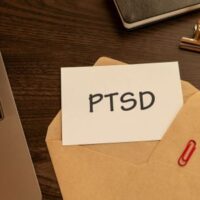The Five Kinds of Post Traumatic Stress Disorder

Other than combat stress, car crash stress is the leading cause of Post Traumatic Stress Disorder, a unique kind of brain injury that many people, including many doctors, don’t fully understand. Extreme stress, like the stress of a life-threatening vehicle collision, alters the brain’s chemical composition. This chemical imbalance causes symptoms like hypervigilance, depression, and anxiety. These symptoms make it almost impossible to function on a daily basis.
Unfortunately, PTSD is easy to develop but difficult to cure. Since it has a chemical cause, it has a chemical solution, but doctors have yet to find a safe solution. Available drugs only treat the symptoms. That means ongoing management, and ongoing costs. A Carlsbad brain injury lawyer obtains the financial resources these victims need to manage their conditions and live their best lives possible.
Normal Stress Response
A fender-bender or near-miss car accident may cause the mildest form of PTSD. These events create an unreasonable amount of tension and stress. NSR is usually manageable without expensive drugs or therapy. These victims usually just need to talk it out. Patience is required. This process may take several weeks.
If they can’t or won’t talk it out, and their conditions develop into full-blown PTSD, a Carlsbad personal injury lawyer can usually obtain compensation for PTSD, not NSR.
Acute Stress Disorder
Low-speed injury accidents, like a crash that causes mild injury but isn’t bad enough for the airbag to deploy, may cause ASD. Other possible causes include job loss, a natural disaster, or the death of a loved one.
If left untreated, acute stress disorder may actually develop into PTSD. Acute stress disorder can be treated through individual and group therapy, medication and intensive treatments designed by a psychiatrist.
Uncomplicated PTSD
“Uncomplicated” means a single life-threatening event, like a catastrophic car crash injury, caused the PTSD. This condition is the most common form of car crash PTSD.
Symptoms of uncomplicated PTSD include: avoidance of trauma reminders, nightmares, flashbacks to the event, irritability, mood changes and changes in relationships. Uncomplicated PTSD can be treated through therapy, medication or a combination of both.
Complex PTSD
Complex PTSD is the opposite of uncomplicated PTSD. It is caused by multiple traumatic events, not just one. Complex PTSD is common in abuse or domestic violence cases, repeated exposure to war or community violence, or sudden loss.
While they share the same symptoms, treatment of complex PTSD is a little more intense than uncomplicated PTSD. For example, individuals with complex PTSD can be diagnosed with borderline or antisocial personality disorder or dissociative disorders. They exhibit behavioral issues, such as impulsivity, aggression, substance abuse or sexual impulsivity. They can also exhibit extreme emotional issues, such as intense rage, depression or panic.
Comorbid PTSD
To deal with the debilitating symptoms of PTSD, many victims self-medicate with drugs or alcohol. This behavior results in comorbid PTSD. This condition could also develop if the victim has another kind of mental challenge, such as schizophrenia, and then catches PTSD.
Comorbid PTSD is extremely common, as many people suffer from more than one condition at a time. Best results are achieved when both the commingling mental health condition and the comorbid PTSD are treated at the same time.
The same compensation principle mentioned above applies to comorbid PTSD. The insurance company must compensate victims for all injuries or illnesses directly or indirectly related to a car crash or other negligence event.
Work With a Dedicated San Diego County Lawyer
Injury victims are entitled to substantial compensation. For a confidential consultation with an experienced personal injury lawyer in Carlsbad, contact the Pursley Law Firm. The sooner you reach out to us, the sooner we start working for you.
Source:
ptsduk.org/what-is-ptsd/causes-of-ptsd/road-traffic-incident/

